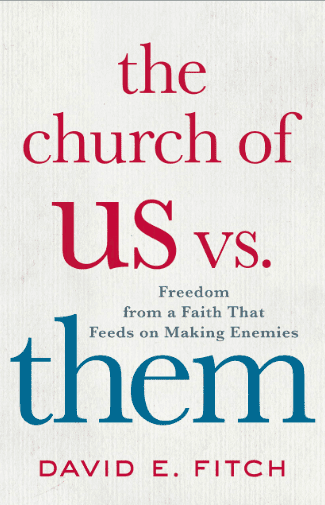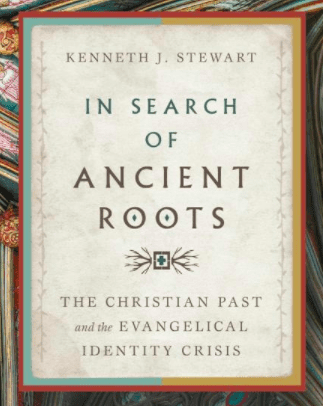In the opinion section of the Sunday NY Times Nicholas Kristof commented on John Stott and his legacy. Scot brought up the most significant aspect of this piece on Sunday – Mr. Kristof’s recognition of the genuine compassion and concern that arose out of John Stott’s commitment to follow Christ. I had already begun a post, however, building on another part of Mr. Kristof’s column, his appreciation for John Stott as an intellectually honest Christian. He quotes Richard Cizik as saying “Against the quackery and anti-intellectualism of our movement, Stott made it possible to say you are ‘evangelical’ and not be apologetic.” This quote refers to Stott’s genuine sincerity in living out the gospel and to his intellectual rigor.
In his column Mr. Kristof continues on to make an interesting observation.
Mr. Stott, who was a brilliant student at Cambridge, also underscored that faith and intellect needn’t be at odds.
Centuries ago, serious religious study was extraordinarily demanding and rigorous; in contrast, anyone could declare himself a scientist and go in the business of, say, alchemy. These days, it’s the reverse. A Ph.D. In chemistry is a rigorous degree, while a preacher can explain the Bible on television without mastering Hebrew or Greek – or even showing interest in the nuances of the original texts.
Mr. Kristoff goes on to bemoan the self-appointed “blowhards” – the so-called experts who give evangelicalism a bad name and in so doing undermine the integrity and image of a multitude of Christians who … ” go to the front lines, at home or abroad, in the battles against hunger, malaria, prison rape, obstetric fistula, human trafficking or genocide, … who truly live their faith.”
What do you think of Mr. Kristof’s point here? Is this a fair critique?
John Stott was one who approached his religious study with professionalism and intellectual rigor. As an evangelical Anglican he blazed a path for many, or at least contributed to it in substantive ways. The bible was always central, but he wrestled with the nuances of the text and the way that the text interfaced with the culture and understanding of its day and the culture and understanding of our day. Yet Mr. Kristof points out that this is not the image of evangelicalism in our time. There is a perception of evangelicalism as an amateur show. Professional expertise, scholarly discourse, and reason are disregarded and distrusted in favor of a popular understanding.
John Stott was an exception to the anti-intellectualism that seems to describe evangelicalism. But he is far from the only exception – CS Lewis, NT Wright, John Polkinghorne, Bruce Waltke, C. John Collins, Pete Enns, Francis Collins, Tim Keller, and I could continue, listing a dozen more.
There is more I could say on this subject, but would rather stop here today and ask a simple question.
Who do you think exemplifies intellectual rigor in evangelicalism? Why?
What characterizes their thinking, impact, and approach?
I don’t want simply a list of people, but some discussion of how we should think as Christians – what it means to be intellectual as opposed to anti-intellectual. There are people on the list I gave with whom I have serious disagreement. On the subject of Adam, to take one issue, John Stott, C. John Collings and Bruce Waltke take a position that values the historicity of the Genesis account more than I do, or than some of the others on my list above.
John Stott, for example, has an section in his commentary on Romans (The Message of Romans) on The historicity and death of Adam (p. 162-166). Stott finds that “the narrative itself warrants no dogmatism about the six days of creation, since its form and style suggest that it is meant as literary art, not scientific description.” He also finds it likely that the snake and trees are meant to be understood symbolically in Gen 2-3. He holds to the historicity of the original human pair 6000-10,000 years ago largely because of the genealogies (esp. Luke 3). He does not deny any of our scientific findings – and admits the probability that creation from dust is a Biblical way of saying that God breathed his divine image into an already existing hominoid. John Collins likewise in his book, Did Adam and Eve Really Exist?: Who They Were and Why You Should Care, holds to a higher degree of historicity than I feel warranted. But both of these men engage honestly with the data (the text of scripture, the nature and extent of scientific understanding, and the research into the ancient near east). There is an openness to engage and defend a position.
Intellectualism does not mean accepting the latest research and following the fads of academe. Rather it represents a manner of thinking and engaging with the issues. It is characterized by an openness to discussion, a desire to continually search for truth, and integrity in dealing with the issues and the data.
What do you think best characterizes Christian intellectualism?
If you wish to contact me directly you may do so at rjs4mail[at]att.net
If interested you can subscribe to a full text feed of my posts at Musings on Science and Theology.











